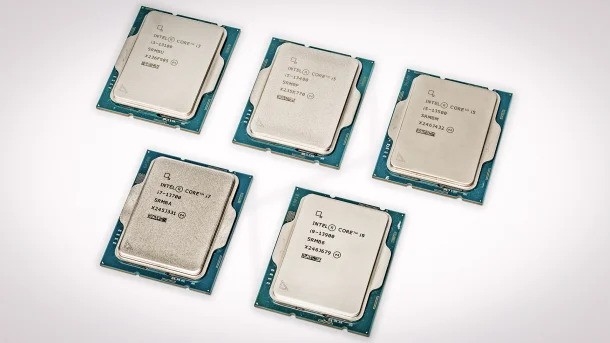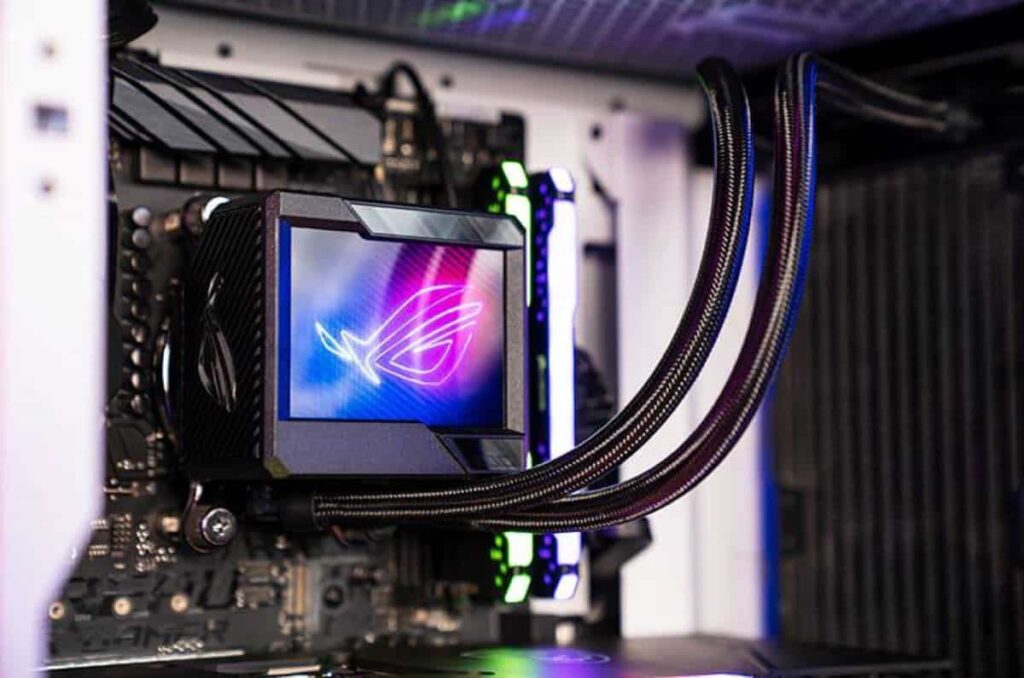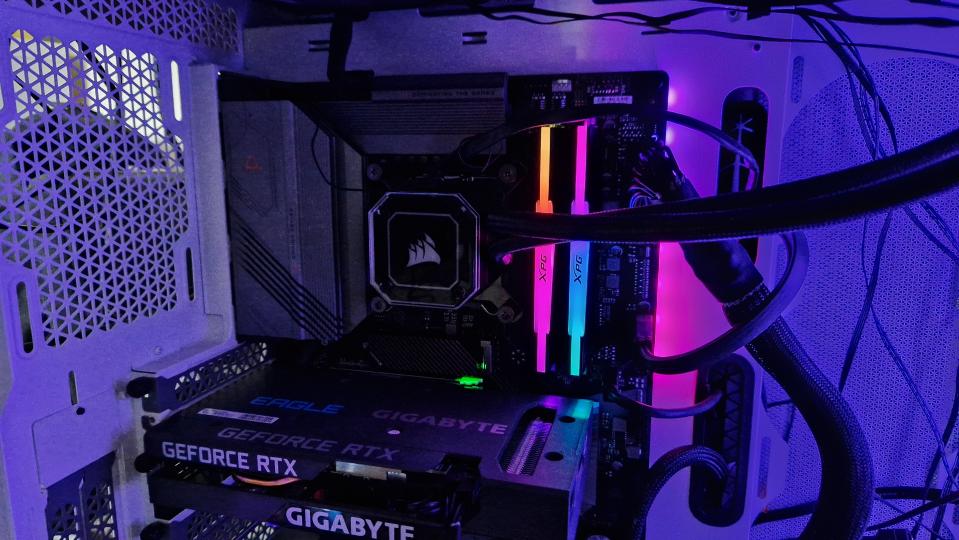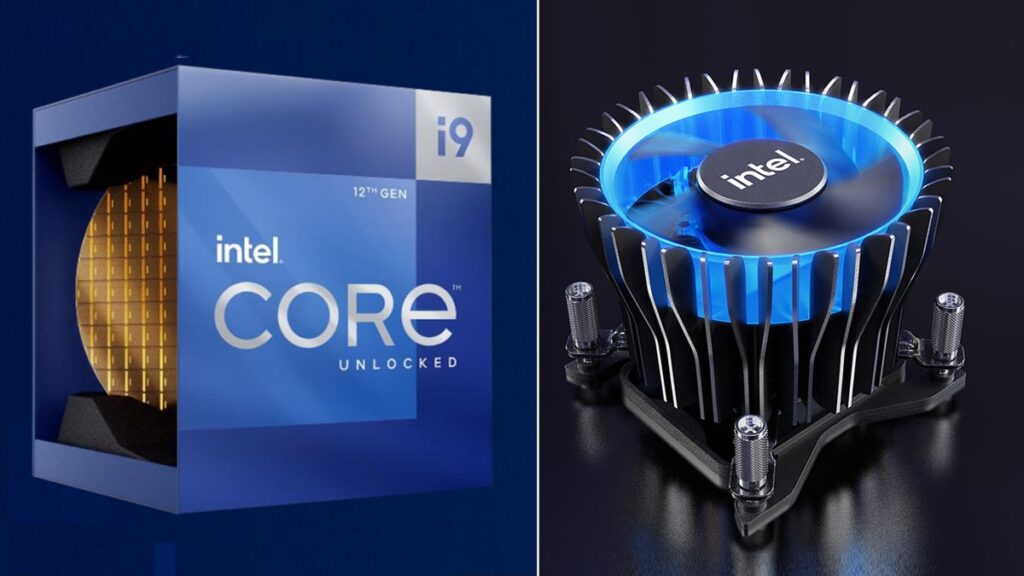One of the most common questions when building or upgrading a PC is about CPU coolers. If you’ve chosen an Intel processor, you might wonder whether it comes with a cooler or if you need to purchase one separately.
Intel processors typically come with stock coolers, especially budget models like i3 and some i5 CPUs. However, high-performance or unlocked models, like the i7 or i9, do not include coolers, requiring a separate purchase.
In this article, we’ll explore whether Intel CPUs come with coolers, the importance of proper cooling, and when upgrading to a better cooling solution is necessary. Let’s dive in!
What Are CPU Coolers and Why Are They Important?
CPU coolers are devices that help keep your processor from overheating. When a processor works, it produces heat; if it gets too hot, it can slow down or even break.
A cooler absorbs the heat and moves it away from the CPU, keeping the temperature safe. It is important because it ensures your computer runs smoothly without crashing or damaging the components.
Without proper cooling, your processor could overheat, causing performance issues or, in the worst case, permanent damage to the hardware.
Intel’s Boxed Processors vs. Tray Processors

Intel sells processors in two types: boxed and tray. A boxed processor is sold with its original packaging and usually comes with a stock cooler.
This cooler helps manage the heat the processor generates. On the other hand, a tray processor is typically sold in bulk to businesses and doesn’t come with a cooler.
Tray processors are often for custom-built computers where users may choose a specific, higher-performance cooler.
The main difference is that boxed processors are meant for personal use, and tray processors are often intended for professional or bulk sales.
Do All Intel Processors Come With Stock Coolers?
Not all Intel processors include a cooler. Let’s break this down by processor series:
1. Stock Coolers Included with Intel Processors
Many entry-level and mid-range Intel processors come with a cooler. These include:
- Intel Core i3: Most Core i3 processors include a basic stock cooler suitable for everyday use.
- Some Core i5 Models: Lower-end Core i5 processors often ship with coolers.
- Pentium and Celeron Processors: These budget-friendly CPUs typically come with stock coolers.
The stock coolers in these packages are designed to handle the heat output of these processors under normal conditions.
2. Intel Processors Without Stock Coolers
High-performance CPUs, such as the Core i7, Core i9, and Xeon processors, do not include stock coolers. These processors are often used in systems where custom or high-performance cooling solutions are necessary.
For example:
- Core i9-13900K: No stock cooler is included because these CPUs are optimized for overclocking and high-performance tasks.
- Xeon Processors: Designed for servers, they require specialized cooling systems.
Also Read: What Kind Of Processor Legacy Asus Eeebox – Ultimate Guide!
Are Intel Stock Coolers Good Enough?
Intel stock coolers are good for everyday tasks, like web browsing or working with documents. They can keep the CPU at a safe temperature while performing light activities.
However, they might not be enough for heavy tasks like gaming, video editing, or overclocking, where the CPU generates more heat.
For these tasks, a better cooler might be needed, like an aftermarket air cooler or liquid cooler. While Intel stock coolers do the job for basic users if you’re planning on running demanding programs or pushing your CPU to its limits, upgrading to a stronger cooler is a good idea.
Aftermarket CPU Coolers: Why and When to Upgrade

1. Air Cooling Options
Air coolers use a heatsink and a fan to move heat away from the CPU. They’re affordable and easy to install. Popular air coolers, like the Cooler Master Hyper 212, offer most users good performance and quiet operation.
These coolers are great for normal gaming or general use but might struggle with extremely high-performance tasks. Air coolers are also low-maintenance and don’t need refilling.
2. Liquid Cooling Options
Liquid coolers circulate liquid to absorb heat from the CPU, offering better cooling than air coolers. They are ideal for overclocking or high-performance systems.
Liquid coolers like the Corsair Hydro series are more efficient and can cool CPUs more effectively, especially in compact builds.
They are quieter than air coolers and look sleek but may require more maintenance, like occasional refilling or cleaning.
How to Check If Your Intel Processor Comes With a Cooler
- Look for “Boxed” label: If the processor is labeled “boxed,” it usually means it comes with a stock cooler. This is common for retail versions.
- Check the product description: Online stores or product pages often mention if a cooler is included with the processor.
- Read Intel specifications: You can visit Intel’s official website, listing the details about each processor, including whether it comes with a cooler.
- Ask the seller: If unsure, don’t hesitate to ask the seller or contact the manufacturer directly for confirmation.
How to Install a CPU Cooler
Step 1: Apply a small amount of thermal paste on the top of the CPU. This helps transfer heat from the processor to the cooler.
Step 2: Align the cooler carefully with the mounting holes on the motherboard and securely attach it.
Step 3: Attach the fan cable to the CPU fan header on the motherboard. Make sure the fan is facing the correct direction for airflow.
Step 4: Tighten any screws or fasteners to ensure the cooler is firmly in place. Finally, check that the fan is spinning and running properly.
Intel’s Recommendations for Cooling
- Use stock coolers for regular tasks: Intel’s stock coolers are designed for standard, non-demanding tasks like web browsing and office work. They do a good job of keeping temperatures under control.
- Upgrade for overclocking or gaming: For activities like overclocking, gaming, or video rendering, Intel recommends upgrading to an aftermarket cooler to keep the CPU cool under high stress.
- Check the TDP: Your CPU’s thermal design power (TDP) is a key factor. Ensure the cooler you use can handle the processor’s heat output to avoid overheating.
- Avoid using high-performance coolers on low-end CPUs: If you’re not doing anything demanding, sticking with the stock cooler is enough. High-performance coolers are unnecessary for basic tasks.
Do Intel Processors Come With Coolers For Gaming?

Intel processors for gaming, like the i5 or i7, typically don’t come with coolers if they’re unlocked for overclocking.
These CPUs require extra cooling power, especially when gaming. For optimal performance, investing in an aftermarket cooler is recommended.
Must Know: A Credit Card Processor Issue Has Occurred: Complete Guide!
Which Intel CPUs Come With Coolers?
Many Intel CPUs, like the Core i3, some i5, and Pentium processors, come with stock coolers. However, high-performance models like the i7, i9, and unlocked versions generally don’t include coolers, as they require more powerful cooling solutions.
Do AMD CPUs Come With Coolers?
Yes, many AMD CPUs, especially Ryzen models, come with coolers. For example, Ryzen 3, 5, and 7 processors often include stock coolers like the Wraith Spire or Prism. However, some higher-end models may require separate cooling solutions.
Does The Intel i5-12400f Come With A Cooler?
Yes, the Intel i5-12400F comes with a stock cooler. While it’s not designed for extreme overclocking, this cooler is sufficient for regular use, such as gaming or office tasks. However, upgrading is recommended for better cooling performance under heavy workloads.
Intel CPU Cooler LGA 1700
The LGA 1700 socket, used in newer Intel CPUs like the 12th-gen Alder Lake processors, requires a compatible cooler. Intel provides stock coolers for some models, but you may need an aftermarket cooler for better performance, especially overclocking.
Do I need a CPU Cooler for my i7-12700k?
Yes, the Intel i7-12700K does not come with a stock cooler. For this unlocked CPU, you’ll need a high-quality aftermarket cooler to manage heat, especially if you plan to overclock it. A good air or liquid cooler is recommended.
Do CPUs come with heatsink?
Some CPUs come with a heatsink, which helps dissipate heat away from the processor. Intel’s lower-end models often include a basic heatsink, but higher-end or unlocked processors usually don’t, requiring users to buy a separate cooler.
Do Intel CPUs come with coolers?

Intel CPUs vary in terms of whether they come with coolers. Budget and mid-range models, like the i3 or i5, often include stock coolers, while high-end or unlocked processors, like the i7 and i9, do not come with a cooler.
Does the i5 12400F have a cooler?
Yes, the Intel i5-12400F comes with a stock cooler. This cooler is sufficient for standard usage, such as browsing or gaming, but if you’re looking for overclocking or extreme performance, you should consider upgrading to a better cooler.
Is the stock cooler for I5 or I7 series CPUs Good?
The stock cooler for i5 or i7 CPUs is usually adequate for light tasks. However, for gaming or heavy workloads, you may experience higher temperatures. In these cases, upgrading to a better aftermarket cooler can improve performance and longevity.
FAQs
1. Does the Intel i9 come with a cooler?
No, Intel i9 processors do not come with a cooler. You’ll need to buy a separate cooler for better performance.
2. Does the i7 come with a cooler?
Intel i7 processors typically don’t come with a cooler. For high performance, you should invest in a separate cooler.
3. Do Intel stock coolers not come with Thermal Paste pre-applied?
Intel stock coolers usually don’t have thermal paste pre-applied. You need to apply it before installing the cooler.
4. Can you tell me why Intel’s unlocked CPUs don’t come with a stock cooler?
Intel’s unlocked CPUs don’t include coolers because they’re designed for overclocking, which requires more powerful cooling solutions for stability.
5. Intel processor comes with a fan. Should I buy a separate air cooler?
If you’re not overclocking, the stock fan is fine. For better cooling and quieter performance, consider an aftermarket air cooler.
Conclusion
In conclusion, while many Intel processors come with stock coolers, high-performance models like the i7 and i9 and unlocked versions typically do not. Investing in an aftermarket cooler for demanding tasks like gaming or overclocking is highly recommended for better performance and stability.















